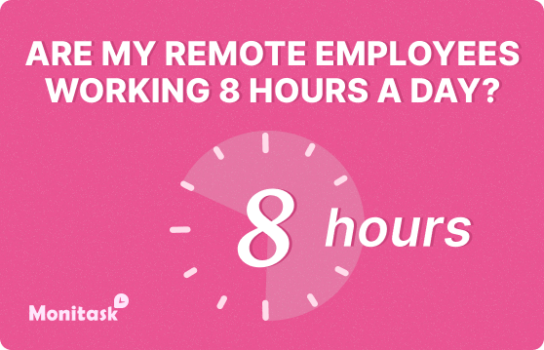Immigration Reform and Control Act (IRCA)
Introduction to the Immigration Reform and Control Act (IRCA)
The Immigration Reform and Control Act (IRCA) of 1986 stands as a pivotal piece of legislation in the United States' approach to immigration policy and employment practices. Enacted during a time of growing concerns about undocumented immigration, the IRCA aimed to address multiple facets of the immigration system, from border control to employer responsibilities. This comprehensive law has had far-reaching implications for human resources professionals, business owners, and immigrants alike, shaping the landscape of employment verification and immigration enforcement for decades.
At its core, the IRCA sought to strike a balance between controlling illegal immigration and providing pathways for certain undocumented immigrants already in the country. The act introduced significant changes to employment practices, making it illegal for employers to knowingly hire or continue to employ individuals who are not authorized to work in the United States. This shift placed a new burden on employers, requiring them to verify the identity and employment eligibility of all new hires, regardless of citizenship or national origin.
Key Components of the IRCA
The IRCA encompasses several critical components that have reshaped the relationship between immigration policy and employment practices. Understanding these elements is crucial for HR professionals and employers to ensure compliance and avoid potential legal issues.
Employer Sanctions
One of the most significant aspects of the IRCA is the introduction of employer sanctions. This provision made it unlawful for employers to knowingly hire, recruit, or refer for a fee any alien who is not authorized to work in the United States. The act established civil and criminal penalties for employers who violate these provisions, including fines and potential imprisonment for pattern or practice violations.
Employment Verification
The IRCA mandated the implementation of the I-9 form, a document used to verify the identity and employment authorization of individuals hired for employment in the United States. Employers are required to complete and retain I-9 forms for all new hires, including U.S. citizens and non-citizens. This process involves examining documents presented by the employee to establish identity and work authorization.
Anti-Discrimination Provisions
Recognizing the potential for discrimination arising from the new employment verification requirements, the IRCA included anti-discrimination provisions. These prohibit employers from discriminating against individuals based on national origin or citizenship status in hiring, firing, or recruitment practices. The act also established the Office of Special Counsel for Immigration-Related Unfair Employment Practices to enforce these provisions.
Legalization Programs
In addition to its enforcement measures, the IRCA included provisions for legalization programs. These programs offered pathways to legal status for certain undocumented immigrants who had been continuously present in the United States since before January 1, 1982. The act also included special provisions for agricultural workers through the Special Agricultural Worker (SAW) program.
Impact on Human Resources Practices
The enactment of the IRCA has had profound implications for human resources management across all industries. HR professionals have had to adapt their practices and procedures to ensure compliance with the law's requirements while maintaining fair and non-discriminatory hiring practices.
I-9 Compliance
The introduction of the I-9 form has become a cornerstone of HR compliance efforts. Human resources departments must ensure that all new hires complete the I-9 form within three business days of starting employment. This process involves carefully examining and verifying the authenticity of documents presented by employees to prove their identity and work authorization.
HR professionals must stay updated on the latest versions of the I-9 form and acceptable documents, as these can change over time. They must also implement systems for securely storing I-9 forms and ensuring they are available for inspection by authorized government officials.
Training and Education
Ensuring compliance with the IRCA requires ongoing training and education for HR staff and hiring managers. This includes understanding the proper procedures for completing I-9 forms, recognizing fraudulent documents, and avoiding discriminatory practices in the verification process. Many organizations have implemented regular training programs to keep their staff informed about IRCA requirements and best practices.
Audit Preparedness
The possibility of government audits has led HR departments to develop robust internal audit processes. Regular self-audits of I-9 forms and employment verification procedures help identify and correct errors before they become issues during an official inspection. HR professionals must be prepared to respond to Notices of Inspection from Immigration and Customs Enforcement (ICE) and manage the audit process effectively.
Technology Integration
To streamline compliance efforts, many organizations have turned to technology solutions. Electronic I-9 systems and E-Verify, a web-based system that allows employers to confirm the eligibility of their employees to work in the United States, have become increasingly popular tools for managing IRCA compliance. HR professionals must evaluate and implement these technologies while ensuring they meet legal requirements for electronic storage and signatures.
Challenges and Controversies
While the IRCA aimed to address critical issues in immigration and employment, its implementation has not been without challenges and controversies. Understanding these issues is essential for HR professionals navigating the complex landscape of immigration compliance.
Document Fraud
One of the persistent challenges in implementing the IRCA has been the prevalence of document fraud. Despite the act's requirements for document verification, sophisticated forgeries and identity theft have made it difficult for employers to detect unauthorized workers. This has led to ongoing debates about the effectiveness of the current employment verification system and calls for more robust technological solutions.
Discrimination Concerns
The anti-discrimination provisions of the IRCA were intended to prevent employers from unfairly targeting certain groups in their hiring practices. However, some argue that the act's requirements have inadvertently led to discrimination against individuals who appear foreign or have accents, as employers may be overly cautious about hiring anyone they suspect might not be authorized to work. Balancing compliance with anti-discrimination principles remains a significant challenge for HR professionals.
Enforcement Inconsistencies
The enforcement of IRCA provisions has varied over time and across administrations, leading to uncertainty for employers and immigrants alike. Periods of increased enforcement have led to heightened anxiety among immigrant communities and concerns about workplace raids. Conversely, periods of lax enforcement have been criticized for undermining the act's effectiveness in controlling unauthorized employment.
Complexity and Administrative Burden
The requirements of the IRCA have placed a significant administrative burden on employers, particularly small businesses with limited resources. The complexity of the I-9 process and the potential for costly mistakes have led some to argue that the act places an unfair burden on employers to enforce immigration laws.
Evolution and Amendments
Since its enactment in 1986, the IRCA has undergone several amendments and interpretations that have shaped its implementation. Understanding these changes is crucial for HR professionals to maintain compliance and adapt to evolving requirements.
E-Verify
One of the most significant developments since the IRCA's initial passage has been the introduction of E-Verify. Launched in 1997 as a pilot program, E-Verify has become an increasingly important tool for employment verification. While not mandatory for all employers at the federal level, some states have enacted laws requiring its use. The system allows employers to electronically verify the employment eligibility information provided on I-9 forms against federal databases.
Form I-9 Updates
The I-9 form itself has undergone several revisions since its introduction. These updates have aimed to clarify instructions, reduce errors, and adapt to changing document requirements. HR professionals must stay informed about these changes and ensure they are using the most current version of the form.
Increased Penalties
Over the years, penalties for IRCA violations have been increased to enhance enforcement. These increases have affected both civil and criminal penalties for knowingly hiring unauthorized workers and for I-9 paperwork violations. The potential for substantial fines has underscored the importance of strict compliance measures for employers.
Best Practices for HR Compliance
Given the complexities and potential pitfalls associated with IRCA compliance, HR professionals must adopt robust best practices to ensure they meet legal requirements while protecting their organizations from liability.
Develop Comprehensive Policies
Creating clear, written policies regarding employment verification and I-9 compliance is essential. These policies should outline procedures for completing I-9 forms, reviewing documents, and handling potential issues that may arise during the verification process. Having well-documented policies can help ensure consistency and demonstrate good faith efforts to comply with the law.
Implement Regular Training
Providing ongoing training for HR staff and hiring managers is crucial for maintaining compliance. This training should cover proper I-9 completion, document review procedures, and anti-discrimination provisions. Regular refresher courses can help keep staff up-to-date on any changes to the law or best practices.
Conduct Internal Audits
Regular internal audits of I-9 forms and employment verification procedures can help identify and correct errors before they become issues during government inspections. Establishing a routine audit schedule and documenting the process can demonstrate proactive compliance efforts.
Leverage Technology
Utilizing electronic I-9 systems and E-Verify can streamline the verification process and reduce errors. However, it's important to ensure that any technology solutions meet legal requirements for electronic storage and signatures. HR professionals should carefully evaluate and implement these tools to enhance compliance efforts.
Stay Informed
Immigration laws and regulations are subject to change, and staying informed about updates is critical. HR professionals should regularly consult resources from U.S. Citizenship and Immigration Services (USCIS) and legal experts to ensure they are aware of any changes that may affect their compliance obligations.
Future Outlook
As immigration remains a contentious political issue, the future of the IRCA and related immigration policies is likely to see continued debate and potential changes. HR professionals must remain vigilant and adaptable to navigate this evolving landscape.
Potential Legislative Changes
Discussions around comprehensive immigration reform continue to surface in political discourse. Any significant changes to immigration laws could have profound implications for employment verification requirements and HR practices. Proposals for enhancing electronic verification systems, revising penalties, or altering legalization programs could all impact how employers approach IRCA compliance.
Technological Advancements
The ongoing development of new technologies, such as blockchain and artificial intelligence, may offer new solutions for employment verification and document authentication. These advancements could potentially streamline compliance processes and reduce the risk of document fraud, but they may also raise new privacy and security concerns that HR professionals will need to address.
Global Workforce Considerations
As businesses increasingly operate on a global scale, HR professionals may face new challenges in reconciling IRCA requirements with international employment practices. The rise of remote work and global talent acquisition strategies may necessitate new approaches to employment verification and compliance.
Conclusion
The Immigration Reform and Control Act of 1986 has fundamentally altered the landscape of employment practices and immigration enforcement in the United States. For HR professionals, understanding and navigating the complexities of IRCA compliance is an ongoing challenge that requires vigilance, adaptability, and a commitment to fair and legal employment practices.
As we look to the future, the principles underlying the IRCA—balancing immigration control with fair employment practices—are likely to remain relevant, even as the specific mechanisms for achieving these goals may evolve. HR professionals will continue to play a crucial role in implementing these policies, ensuring compliance, and fostering diverse and inclusive workplaces that reflect the evolving nature of the American workforce.
Ultimately, the IRCA serves as a reminder of the intricate relationship between immigration policy and employment practices. As societal needs and political landscapes shift, HR professionals must remain at the forefront of understanding and implementing fair, legal, and effective employment verification processes. By staying informed, adopting best practices, and anticipating future changes, HR departments can navigate the complexities of IRCA compliance while contributing to a more equitable and lawful employment environment for all.


